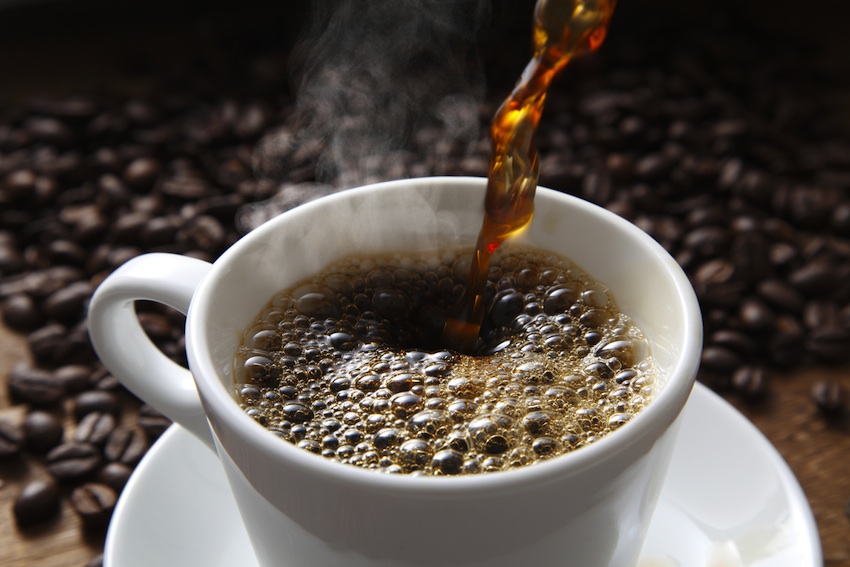Caffeine Withdrawal is a Thing

Too much caffeine might actually be making us crazy. Coffee image via Shutterstock.
As you sit at your desk, hands shaking and mind racing from your morning cups of coffee, consider this: the newest version of the Diagnostic and Statistical Manual of Mental Disorders (DSM) says that caffeine is the most widely used behavior modification drug in existence. Yep, you read that right — your caffeine addiction is actually a thing.
The DSM, a diagnostic manual that identifies disorders within the population like hoarding and multiple personality disorder, refers to “caffeine intoxication” as self-medication, with its users experiencing the symptoms of restlessness, nervousness, excitement, red face, stomach distress, muscle twitching, rambling speech, sleeplessness, and a rapid or irregular heartbeat after drinking 250 milligrams of caffeine, which is equal to about two cups of brewed coffee.
The previous version of the DSM had caffeine intoxication listed under its disorders, too, but the definition has been expanded this time to include something called “caffeine withdrawal”, or what most coffee drinkers know as the hell of coming down off of a caffeine high. The symptoms of caffeine withdrawal include headaches, fatigue, difficulty concentrating, and even depressed moods. Basically, 4 p.m. every day during the work week.
Think you’re safe from that diagnosis because you only drink one large cup every morning? Think again. A tall Starbucks coffee has 260 milligrams of caffeine, which is the amount that causes caffeine intoxication, and two or three cups of brewed coffee can leave you on a major caffeine rebound, too.
Based on this new diagnosis, the FDA has announced that it might consider regulating the self-medicating drug of caffeine, although it likely won’t be taking coffee off of the shelves anytime soon. Caffeine has been shown to have some benefits— increased fat burn, increased metabolism, and increased mental acuity — but consuming more than one cup of coffee doesn’t necessarily mean more fat burning or a higher level of attentiveness.
So when it comes to caffeine, as with any substance, moderation is key.


